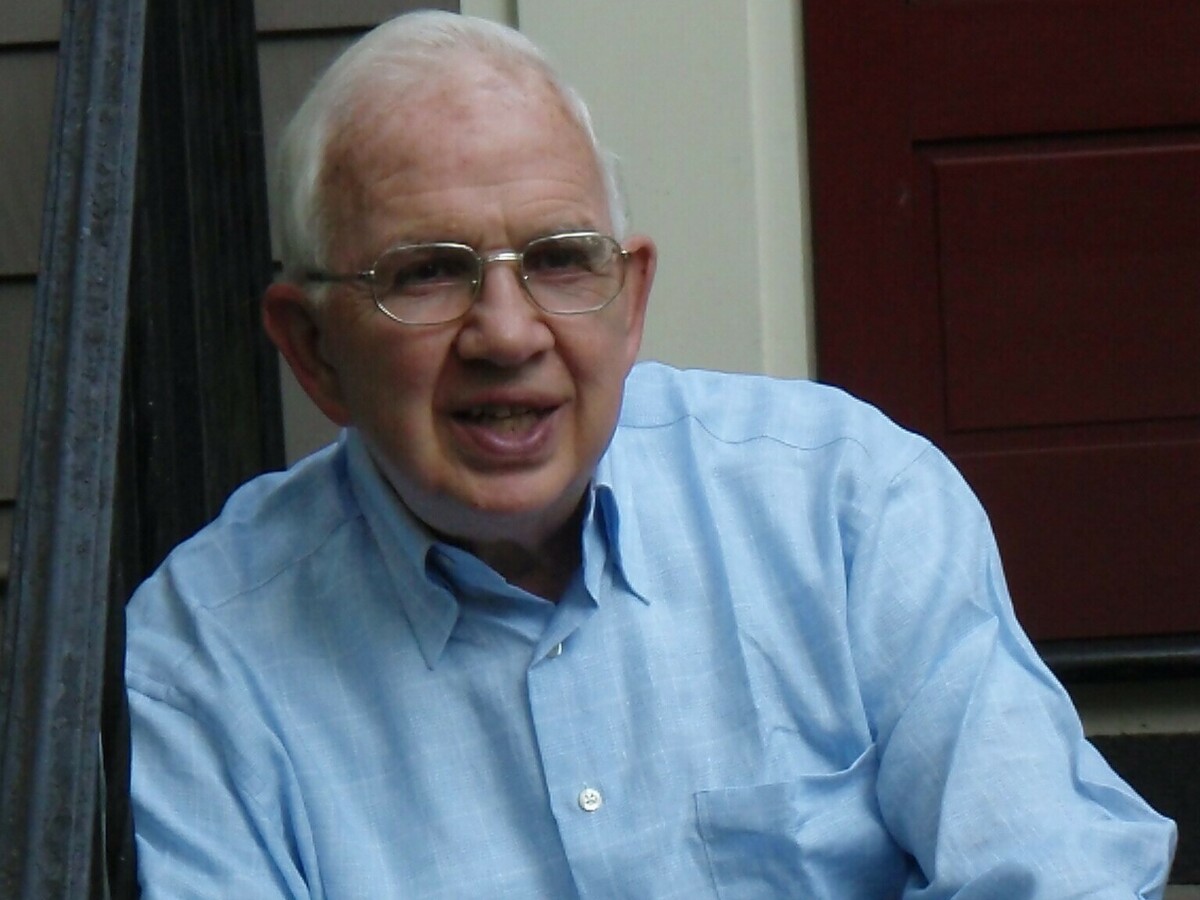
[ad_1]

Rabbi Harold Kushner, seen right here on July 10, 2008, had a method with phrases that resonated with readers internationally and throughout religions.
Ariel Kushner Haber
disguise caption
toggle caption
Ariel Kushner Haber

Rabbi Harold Kushner, seen right here on July 10, 2008, had a method with phrases that resonated with readers internationally and throughout religions.
Ariel Kushner Haber
Rabbi Harold Kushner, who by no means strayed from answering life’s most vexing questions on loss, goodness and God, and by doing so, introduced consolation to individuals internationally, died on Friday whereas in hospice care in Canton, Mass. He was 88.
“He was a giant for our family and an incredibly dedicated father and grandfather who can be counted on for everything. We are gratified to know so many people are grieving with us,” Kushner’s daughter, Ariel Kushner Haber, informed NPR.
Kushner’s funeral will likely be held Monday at Temple Israel of Natick in Natick, Mass., the place he served as a congregational rabbi for twenty-four years.
Kushner was born and raised in a predominately Jewish neighborhood in Brooklyn, N.Y. He studied at Columbia University and later obtained his rabbinical ordination from the Jewish Theological Seminary in New York in 1960.
The writer of 14 books, Kushner is maybe finest identified for his title, When Bad Things Happen to Good People, which he wrote after shedding his first-born baby.
The tragedy propelled grief-stricken Kushner to look to the Bible to boldly confront problems with struggling, equity and the function of an all-powerful God — a process that many have ventured to clarify however only a few have answered as successfully and gracefully as him.
“God would like people to get what they deserve in life, but He cannot always arrange it. Forced to choose between a good God who is not totally powerful, or a powerful God who is not totally good, the author of the Book of Job chooses to believe in God’s goodness,” Kushner wrote.
The e-book, printed over 4 many years in the past, offered a message that readers all through the generations wanted to listen to: that God’s love is limitless and that God’s final plan is that folks will reside absolutely, bravely and meaningfully in a less-than excellent world.
Kushner’s writings resonated with readers throughout religions
Kushner’s different works equally tackled life’s most troublesome questions on goodness, failure and function. Though they have been largely knowledgeable by a Jewish theology, his writing resonated with readers throughout religions.
After the catastrophic occasions of Sept. 11, 2001, Kushner’s meditation on Psalm 23 turned a best-seller, providing steerage on the best way to discover religion and braveness within the midst of insufferable tragedy.
“Much of the time, we cannot control what happens to us. But we can always control how we respond to what happens to us,” he wrote. “If we cannot choose to be lucky, to be talented, to be loved, we can choose to be grateful, to be content with who we are and what we have, and to act accordingly.”
In an interview with NPR’s Renee Montagne in 2010, Kushner admitted he felt conflicted that When Bad Things Happen to Good People continues to attract new readers.
“I feel just a little bit conflicted about the fact that it continues to resonate, because it means there are more people confronting new problems of suffering,” he mentioned. “There’s always a fresh supply of grieving people asking, ‘Where was God when I needed him most?’ “
When requested whether or not his relationship with God has advanced with age, Kushner, who was 74 on the time, mentioned no.
“My sense is, God and I came to an accommodation with each other a couple of decades ago, where he’s gotten used to the things I’m not capable of, and I’ve come to terms with things he’s not capable of,” he mentioned. “And we still care very much about each other.”
[adinserter block=”4″]
[ad_2]
Source link
